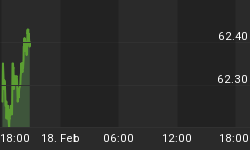The 1.9% devaluation in the peg of the Chinese yuan is a balancing act between addressing the slowdown in exports and the economy, and stabilizing the risks of escalating capital outflows. In a nod to the IMF, China has altered the way it announces its daily fixing--the anchor price around which intraday fluctuations are permitted to move by no more than 2.0%-- by using the previous day's close instead of an arbitrary level set by the PBOC. This is no surprise to those who read us here 2 days ago.

The decision to set the daily anchor, or central rate based on the prior day's close is a an important move towards a more market-based setting, which meets a key requirement before including the yuan in the basket of the IMF's Special Drawing Right--a foreign exchange asset created by the Fund for central banks to maintain reserves in a more diversified manner.
Falling Exports, Reserves & Growth
In terms of its current account, China's slowing growth has manifested itselfin the 9th consecutive monthly decline in imports (longest since 2008-9), the5th decline in exports over the last seven months and a 7% decline in China'scurrency reserves to a 2-year low. The situation had especially deterioratedafter the CNY rebounded in early March into early summer following the PBOC'sefforts to stem any capital outflows, which arose from the 3% decline betweenOctober 2014 and March 2015.
Implications for Fed Policy
Less than 24 hours after the US dollar sustained a notable sell-off followingremarks by Fed's Fisher highlighting weak inflation and throwing doubts overa September rate hike, the PBOC acted with a never-seen devaluation, which partiallyreversed yesterday's USD decline.The plunge in commodities- led by the 30% decline oil since May--is widely seen as a cause of disinflationary pressures. Further devaluation from Beijing could be the coup de grace for commodities, thereby exporting deflation to the US and Europe.
At a time when several FOMC members were considering a rate hike as early as next month, China's devaluation further highlights the importance of low inflation as an obstacle to Fed tightening. The decision also complicates the task of those Fed members, aiming for September liftoff but without further USD gains.
Jackson Hole will be about inflation, not jobs
Considering the disinflationary US dollar and recessionary oil/mining sector,the question to raise rates this autumn should re-emerge at the Fed's August27-29 annual Economic Policy Symposium at Jackson Hole, where unsurprisinglythe topic of this year's conference will be "Inflation Dynamics and MonetaryPolicy", following last year's topic, which centered around labour markets. Fedchair Yellen will not be present at this year's conference, but the heated debatedabout the topic will not be absent, especially as it will take place 3 weeksdays before the Sept FOMC and 7 days after the latest Greece deadline.We continue to expect no rate hike this year.
















